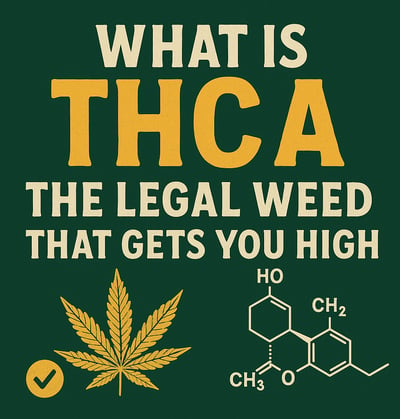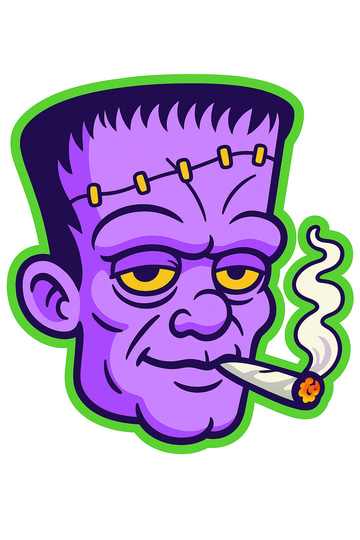THCA vs THC: What’s the Real Difference?
5/29/20251 min read


🔬 The Science: Molecular Structure
At the molecular level, the difference between THCA and THC comes down to one thing: a carboxyl group (COOH).
THCA (Tetrahydrocannabinolic Acid): This is the non-psychoactive, acidic precursor to THC. It includes an extra carboxyl group, making it unable to bind to CB1 receptors in your brain.
THC (Delta-9-Tetrahydrocannabinol): This is the active compound that gets you high. Once the carboxyl group is removed, the molecule changes shape and interacts with your brain’s cannabinoid receptors.
⚡️ The Process: Decarboxylation
So how does THCA become THC? Through a process called decarboxylation:
Add heat (via smoking, vaping, or baking)
The carboxyl group (COOH) breaks off
THCA is transformed into THC
Why this matters:
Raw THCA flower won’t get you high unless it’s heated.
Once smoked or vaped, the THCA turns into THC and delivers the full psychoactive effect.\
🚀 Effects: What You’ll Actually Feel
THCA is used more for its potential medical benefits (like anti-inflammatory and anti-nausea effects) in raw or cold-extracted forms. THC is the go-to for recreational use and deep body highs.
🔒 Legal Status
THCA is federally legal under the 2018 Farm Bill if it tests under 0.3% Delta-9 THC by dry weight. This makes it possible to legally buy high-potency flower that becomes psychoactive only when you use it. THC, on the other hand, is still a Schedule I controlled substance in most states without medical or recreational programs
🔧 Final Thoughts: Why It Matters
THCA is legal, potent, and transforms into THC when smoked.
It gives users access to high-quality cannabis effects without the federal legal risk (as long as the Delta-9 content stays under 0.3%).
If you’re in Texas or another gray-area state, THCA flower is the loophole you’ve been looking for.
-Frankies Exotics
Quality
We don’t do mids. Every product we carry is top-tier, lab-tested, and hand-selected for quality you can see, smell, and feel. Only the best make it out of Frankie’s Store.
Text for Delivery
Subscribe to our LABSLETTER
© 2025. All rights reserved.
